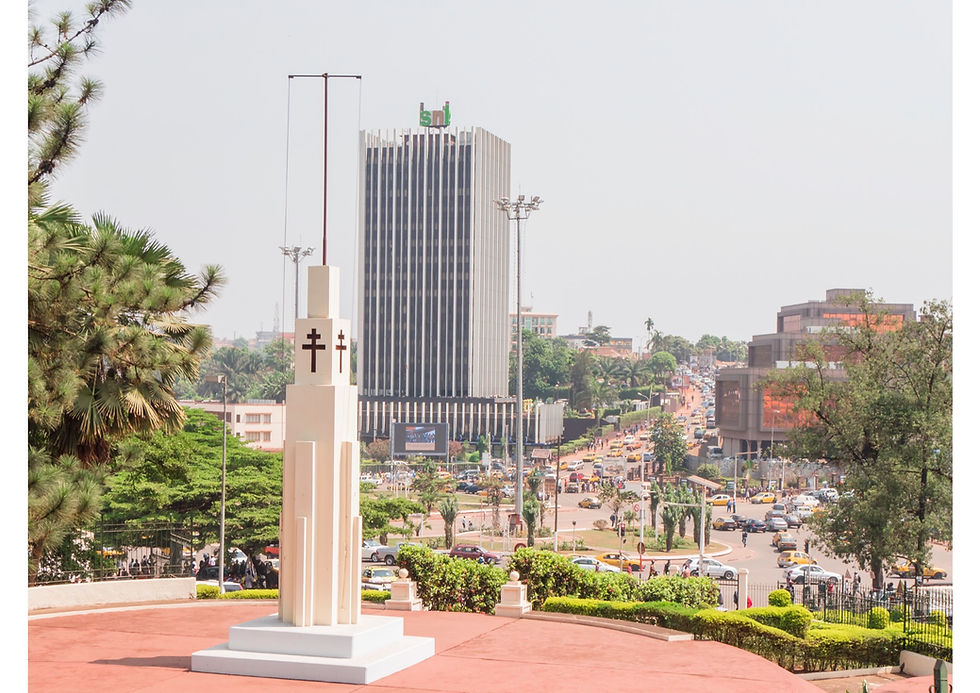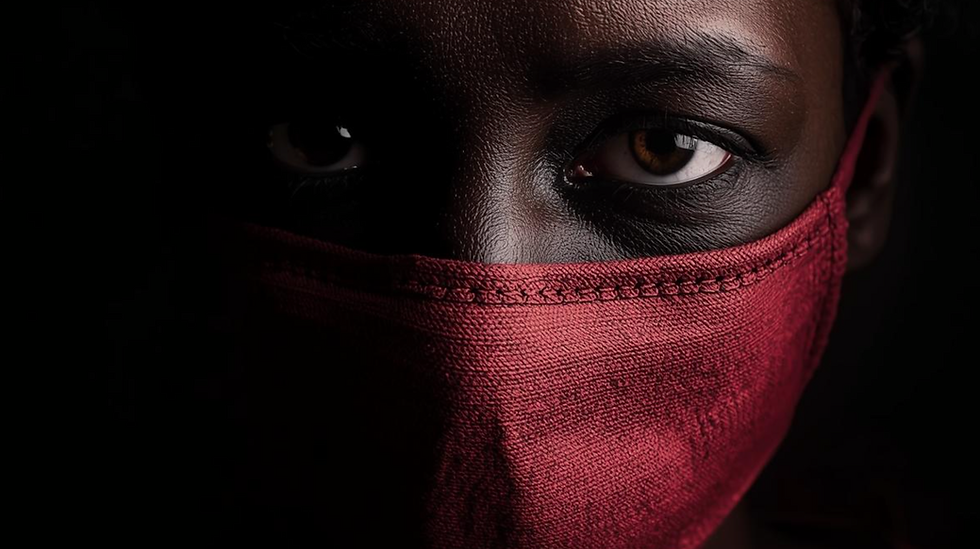The Impact of COVID-19 in Cameroon
- Nikki Brown
- Aug 6, 2020
- 5 min read
Updated: Nov 27, 2020
We're all aware that COVID-19 has had devastating impacts across the globe and has turned life as we know it upside down; it's not something we can hide from. In developing countries, managing the virus is an even bigger challenge.
At the beginning of the pandemic, scientists hoped that warmer climates and younger populations would mean developing countries such as those in West Africa would be largely safe. This optimism was short-lived, however, and as we have discovered more about the virus, we have also learnt that this isn't the case. Combining advice from scientists around the spread of the virus in West Africa and the impact of the Anglophone crisis meant Cameroon was late to act against COVID-19. This has unfortunately led to a surge in cases and the pandemic getting out of hand.

In May, Cameroon was labelled the epicentre of the pandemic in West Africa. Combined with political unrest and civil war which has killed over 3,000 people and forced more than half a million people to flee their homes, Cameroon is in turmoil. To date; Cameroon has over 17,250 confirmed COVID-19 cases and 391 deaths; the situation doesn't look set to improve with more and more COVID-19 related issues arising by the day.
Here are just some of the ways the virus has impacted the nation:
The Fight for PPE
On April 9, in an attempt to slow down the spread of COVID-19 in Cameroon, wearing face masks became mandatory in public spaces. However, the country could not prepare itself for a lack of supplies, which has increased the costs of masks hugely. As a result, disposable masks are becoming more and more expensive and many can't afford to keep buying them, so homemade masks appear to be the only option. Police are reportedly arresting those seen without masks as wearing one is seen as a hugely beneficial way to stop the spread of the virus. However, it is increasingly difficult and more costly to access basic safety equipment.
Cameroon is also struggling to keep up with the demand for testing. Initially, Cameroon took early action to test, trace and isolate cases, they made this a priority to control the virus as best they could. However, due to a dramatic increase and limited access to testing services it is harder for communities to know the full extent of transmission across Cameroon. The virus spread faster than anyone could anticipate, meaning that testing capacity could not meet demand.
In many areas of Cameroon, there is still a lack of consistent water supply, especially in rural communities. Hand sanitisers, which may seem like an obvious choice to help are not an affordable option for these communities, particularly in the current climate. Hand sanitiser is hard to access and is proving very costly. With many communities struggling to access even soap and water, it makes basic hygiene difficult which again, can worsen the spread of the virus.

Schools reopening without supplies
Initially, Cameroon's schools were closed to protect the population from the spread of COVID-19. Now schools and universities in Cameroon have reopened with hundreds of students returning to their classrooms, despite the number of COVID-19 infections continually increasing.
The government has tried to supply disinfectant, hand sanitiser and clean water to schools, but due to a national shortage, this has not been possible. Most schools don't even have access to basic clean water and soap. This is putting children and their teachers are in danger and as the risk of infection is still incredibly high, is putting their respective families in danger too. By opening schools without the necessary supplies, Cameroon will be unable to stop the spread of the virus and the situation is likely to worsen.
Parents that choose to keep their children away from schools and universities in the interest of safety are then putting their education at risk. In developing countries, a good education can help to improve the quality of life and provides opportunities to break the poverty cycle, children must have access to these opportunities. With the lack of resources available, home-schooling in the developing world is not a simple task. Currently, families must now choose between the importance of a good education and their safety.

Limited Access to Food
Access to food in West African countries has been difficult for many years due to conflict, however, with the impact of COVID-19, the World Health Organisation anticipates a further 22 million people across the continent will become reliant on food aid by August.
The region faces the three-pronged threat to their food supply; rising conflict, climate change damaging food supply chains, and now the COVID-19 pandemic. Unfortunately, this pandemic coincides with the farming season, and fewer farmers will likely be able to work as a result. This means Cameroon is going to experience both food shortages and price hikes in the months ahead.
Also, with schools having to close early on in the crisis and still not being safe to attend, many children do not have access to the nutritious meals families depended on.

Healthcare Workers Security
Cameroon's health system is already in a fragile state. They have limited access to the facilities and equipment needed to tackle a virus like COVID-19 in the way other countries do. With a lack of intensive care beds, ventilators cleaning equipment, basic PPE and overall funding to change their situation, many cannot get the care they require. It's putting a huge strain on the country's hospitals, doctors and medical staff which is only due to worsen as the virus spreads.
Also, without the correct equipment and facilities, healthcare providers and care workers are putting themselves at a greater risk of contracting the disease every day. If they get sick whilst fighting the disease, it will create both an influx of infections and cause issues with a lack of professionals to treat the illness. This means the crisis will continue to spiral.
Cameroon's medical staff, it's reported, have also been at risk of attack. Individuals who reject the diagnosis that their loved ones have died from COVID-19 are attacking doctors and medical staff, raising huge concerns about their safety and the effect it will have on their ability to deliver treatment.

Damaging the Economy
Like many countries across the globe, COVID-19 is having a dramatic impact on Cameroon's economy. The economic state of any country is largely dependent on the health of its citizens and their ability to work. This is obviously impacted by a global pandemic.
With huge impacts on the global economy as well as Cameroon's local one, the people of Cameroon's finances will likely be hit hard by this crisis. The country is expecting huge amounts of job losses which will make it even more difficult to finance health bills, access food and maintain a good quality of life. Basic supplies are also set to become much more expensive to make up for shortfalls in the economy. This will then have an impact on daily life, education and healthcare systems, creating a vicious cycle. In fact, it's reported that Cameroon is likely to face the biggest economic disaster since the great depression in the 1930s.

Political Turmoil
Cameroon is a nation which is suffering from huge political unrest, with the Anglophone crisis continuing despite calls for a ceasefire. Imagine dealing with a worldwide pandemic and a war at the same time! Many who have been affected by war have had to flee their homes and are not contactable which means they may not even know about a global pandemic. This makes it hard to reach others and give them the protective equipment or care that they need as well as to test them for the virus and show them the measures they should be taking. There are fears that many who live in areas affected by the conflict will die from hunger and illness.
Political uncertainty is only amplifying the struggle for protective equipment and access to resources. With a fight for peace and a pandemic occurring at the same time, it's increasingly difficult to prioritise and keep all citizens safe.





Comments